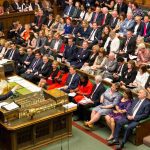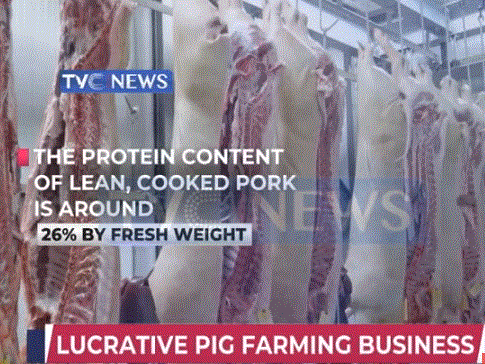British Prime Minister Boris Johnson was on Thursday kicking off what is in effect an election campaign, casting an alliance of opposition parties trying to block a ‘no-deal’ Brexit as defeatists surrendering to the European Union.
As the United Kingdom spins towards a election, Brexit remains up in the air more than three years after Britons voted to leave the bloc in a 2016 referendum. Options range from a turbulent ‘no-deal’ exit to abandoning the whole endeavor.
After wresting control of the lower house of parliament on Wednesday, an alliance of opposition parties and rebels expelled from Johnson’s Conservative party voted to force him to seek a three-month delay to Brexit rather than leaving without a deal on Oct. 31, the date now set in law.
Behind the sound and the fury of the Brexit crisis, an election now beckons for a polarized country. The main choices on offer are Johnson’s radical insistence on leaving the EU on Oct. 31, come what may, and Labour leader Jeremy Corbyn’s hard-left socialist vision, coupled with a promise of a fresh referendum with an option to stay in the EU.
An election adds a new twist to a Brexit crisis that has for three years overshadowed European Union affairs, eroded Britain’s reputation as a stable pillar of the West and seen sterling twitch in tune to the probability of a ‘no-deal’ exit.
Asked if Brexit would happen on Oct. 31, Johnson’s senior adviser Dominic Cummings told Reuters: “Trust the people.”
Against the dollar, the pound fell 0.3% to $1.2211, after jumping 1.4% on Wednesday on the sense that the prospect of a ‘no-deal’ exit had receded. UBS Global Wealth Management said sterling could rally to $1.30 if Brexit was delayed until January 2020 and an election was held after October.
British Prime Minister Boris Johnson was on Thursday kicking off what is in effect an election campaign, casting an alliance of opposition parties trying to block a ‘no-deal’ Brexit as defeatists surrendering to the European Union.
As the United Kingdom spins towards a election, Brexit remains up in the air more than three years after Britons voted to leave the bloc in a 2016 referendum. Options range from a turbulent ‘no-deal’ exit to abandoning the whole endeavor.
After wresting control of the lower house of parliament on Wednesday, an alliance of opposition parties and rebels expelled from Johnson’s Conservative party voted to force him to seek a three-month delay to Brexit rather than leaving without a deal on Oct. 31, the date now set in law.
Behind the sound and the fury of the Brexit crisis, an election now beckons for a polarized country. The main choices on offer are Johnson’s radical insistence on leaving the EU on Oct. 31, come what may, and Labour leader Jeremy Corbyn’s hard-left socialist vision, coupled with a promise of a fresh referendum with an option to stay in the EU.
An election adds a new twist to a Brexit crisis that has for three years overshadowed European Union affairs, eroded Britain’s reputation as a stable pillar of the West and seen sterling twitch in tune to the probability of a ‘no-deal’ exit.
Asked if Brexit would happen on Oct. 31, Johnson’s senior adviser Dominic Cummings told Reuters: “Trust the people.”
Against the dollar, the pound fell 0.3% to $1.2211, after jumping 1.4% on Wednesday on the sense that the prospect of a ‘no-deal’ exit had receded. UBS Global Wealth Management said sterling could rally to $1.30 if Brexit was delayed until January 2020 and an election was held after October.
British Prime Minister Boris Johnson was on Thursday kicking off what is in effect an election campaign, casting an alliance of opposition parties trying to block a ‘no-deal’ Brexit as defeatists surrendering to the European Union.
As the United Kingdom spins towards a election, Brexit remains up in the air more than three years after Britons voted to leave the bloc in a 2016 referendum. Options range from a turbulent ‘no-deal’ exit to abandoning the whole endeavor.
After wresting control of the lower house of parliament on Wednesday, an alliance of opposition parties and rebels expelled from Johnson’s Conservative party voted to force him to seek a three-month delay to Brexit rather than leaving without a deal on Oct. 31, the date now set in law.
Behind the sound and the fury of the Brexit crisis, an election now beckons for a polarized country. The main choices on offer are Johnson’s radical insistence on leaving the EU on Oct. 31, come what may, and Labour leader Jeremy Corbyn’s hard-left socialist vision, coupled with a promise of a fresh referendum with an option to stay in the EU.
An election adds a new twist to a Brexit crisis that has for three years overshadowed European Union affairs, eroded Britain’s reputation as a stable pillar of the West and seen sterling twitch in tune to the probability of a ‘no-deal’ exit.
Asked if Brexit would happen on Oct. 31, Johnson’s senior adviser Dominic Cummings told Reuters: “Trust the people.”
Against the dollar, the pound fell 0.3% to $1.2211, after jumping 1.4% on Wednesday on the sense that the prospect of a ‘no-deal’ exit had receded. UBS Global Wealth Management said sterling could rally to $1.30 if Brexit was delayed until January 2020 and an election was held after October.
British Prime Minister Boris Johnson was on Thursday kicking off what is in effect an election campaign, casting an alliance of opposition parties trying to block a ‘no-deal’ Brexit as defeatists surrendering to the European Union.
As the United Kingdom spins towards a election, Brexit remains up in the air more than three years after Britons voted to leave the bloc in a 2016 referendum. Options range from a turbulent ‘no-deal’ exit to abandoning the whole endeavor.
After wresting control of the lower house of parliament on Wednesday, an alliance of opposition parties and rebels expelled from Johnson’s Conservative party voted to force him to seek a three-month delay to Brexit rather than leaving without a deal on Oct. 31, the date now set in law.
Behind the sound and the fury of the Brexit crisis, an election now beckons for a polarized country. The main choices on offer are Johnson’s radical insistence on leaving the EU on Oct. 31, come what may, and Labour leader Jeremy Corbyn’s hard-left socialist vision, coupled with a promise of a fresh referendum with an option to stay in the EU.
An election adds a new twist to a Brexit crisis that has for three years overshadowed European Union affairs, eroded Britain’s reputation as a stable pillar of the West and seen sterling twitch in tune to the probability of a ‘no-deal’ exit.
Asked if Brexit would happen on Oct. 31, Johnson’s senior adviser Dominic Cummings told Reuters: “Trust the people.”
Against the dollar, the pound fell 0.3% to $1.2211, after jumping 1.4% on Wednesday on the sense that the prospect of a ‘no-deal’ exit had receded. UBS Global Wealth Management said sterling could rally to $1.30 if Brexit was delayed until January 2020 and an election was held after October.
British Prime Minister Boris Johnson was on Thursday kicking off what is in effect an election campaign, casting an alliance of opposition parties trying to block a ‘no-deal’ Brexit as defeatists surrendering to the European Union.
As the United Kingdom spins towards a election, Brexit remains up in the air more than three years after Britons voted to leave the bloc in a 2016 referendum. Options range from a turbulent ‘no-deal’ exit to abandoning the whole endeavor.
After wresting control of the lower house of parliament on Wednesday, an alliance of opposition parties and rebels expelled from Johnson’s Conservative party voted to force him to seek a three-month delay to Brexit rather than leaving without a deal on Oct. 31, the date now set in law.
Behind the sound and the fury of the Brexit crisis, an election now beckons for a polarized country. The main choices on offer are Johnson’s radical insistence on leaving the EU on Oct. 31, come what may, and Labour leader Jeremy Corbyn’s hard-left socialist vision, coupled with a promise of a fresh referendum with an option to stay in the EU.
An election adds a new twist to a Brexit crisis that has for three years overshadowed European Union affairs, eroded Britain’s reputation as a stable pillar of the West and seen sterling twitch in tune to the probability of a ‘no-deal’ exit.
Asked if Brexit would happen on Oct. 31, Johnson’s senior adviser Dominic Cummings told Reuters: “Trust the people.”
Against the dollar, the pound fell 0.3% to $1.2211, after jumping 1.4% on Wednesday on the sense that the prospect of a ‘no-deal’ exit had receded. UBS Global Wealth Management said sterling could rally to $1.30 if Brexit was delayed until January 2020 and an election was held after October.
British Prime Minister Boris Johnson was on Thursday kicking off what is in effect an election campaign, casting an alliance of opposition parties trying to block a ‘no-deal’ Brexit as defeatists surrendering to the European Union.
As the United Kingdom spins towards a election, Brexit remains up in the air more than three years after Britons voted to leave the bloc in a 2016 referendum. Options range from a turbulent ‘no-deal’ exit to abandoning the whole endeavor.
After wresting control of the lower house of parliament on Wednesday, an alliance of opposition parties and rebels expelled from Johnson’s Conservative party voted to force him to seek a three-month delay to Brexit rather than leaving without a deal on Oct. 31, the date now set in law.
Behind the sound and the fury of the Brexit crisis, an election now beckons for a polarized country. The main choices on offer are Johnson’s radical insistence on leaving the EU on Oct. 31, come what may, and Labour leader Jeremy Corbyn’s hard-left socialist vision, coupled with a promise of a fresh referendum with an option to stay in the EU.
An election adds a new twist to a Brexit crisis that has for three years overshadowed European Union affairs, eroded Britain’s reputation as a stable pillar of the West and seen sterling twitch in tune to the probability of a ‘no-deal’ exit.
Asked if Brexit would happen on Oct. 31, Johnson’s senior adviser Dominic Cummings told Reuters: “Trust the people.”
Against the dollar, the pound fell 0.3% to $1.2211, after jumping 1.4% on Wednesday on the sense that the prospect of a ‘no-deal’ exit had receded. UBS Global Wealth Management said sterling could rally to $1.30 if Brexit was delayed until January 2020 and an election was held after October.
British Prime Minister Boris Johnson was on Thursday kicking off what is in effect an election campaign, casting an alliance of opposition parties trying to block a ‘no-deal’ Brexit as defeatists surrendering to the European Union.
As the United Kingdom spins towards a election, Brexit remains up in the air more than three years after Britons voted to leave the bloc in a 2016 referendum. Options range from a turbulent ‘no-deal’ exit to abandoning the whole endeavor.
After wresting control of the lower house of parliament on Wednesday, an alliance of opposition parties and rebels expelled from Johnson’s Conservative party voted to force him to seek a three-month delay to Brexit rather than leaving without a deal on Oct. 31, the date now set in law.
Behind the sound and the fury of the Brexit crisis, an election now beckons for a polarized country. The main choices on offer are Johnson’s radical insistence on leaving the EU on Oct. 31, come what may, and Labour leader Jeremy Corbyn’s hard-left socialist vision, coupled with a promise of a fresh referendum with an option to stay in the EU.
An election adds a new twist to a Brexit crisis that has for three years overshadowed European Union affairs, eroded Britain’s reputation as a stable pillar of the West and seen sterling twitch in tune to the probability of a ‘no-deal’ exit.
Asked if Brexit would happen on Oct. 31, Johnson’s senior adviser Dominic Cummings told Reuters: “Trust the people.”
Against the dollar, the pound fell 0.3% to $1.2211, after jumping 1.4% on Wednesday on the sense that the prospect of a ‘no-deal’ exit had receded. UBS Global Wealth Management said sterling could rally to $1.30 if Brexit was delayed until January 2020 and an election was held after October.
British Prime Minister Boris Johnson was on Thursday kicking off what is in effect an election campaign, casting an alliance of opposition parties trying to block a ‘no-deal’ Brexit as defeatists surrendering to the European Union.
As the United Kingdom spins towards a election, Brexit remains up in the air more than three years after Britons voted to leave the bloc in a 2016 referendum. Options range from a turbulent ‘no-deal’ exit to abandoning the whole endeavor.
After wresting control of the lower house of parliament on Wednesday, an alliance of opposition parties and rebels expelled from Johnson’s Conservative party voted to force him to seek a three-month delay to Brexit rather than leaving without a deal on Oct. 31, the date now set in law.
Behind the sound and the fury of the Brexit crisis, an election now beckons for a polarized country. The main choices on offer are Johnson’s radical insistence on leaving the EU on Oct. 31, come what may, and Labour leader Jeremy Corbyn’s hard-left socialist vision, coupled with a promise of a fresh referendum with an option to stay in the EU.
An election adds a new twist to a Brexit crisis that has for three years overshadowed European Union affairs, eroded Britain’s reputation as a stable pillar of the West and seen sterling twitch in tune to the probability of a ‘no-deal’ exit.
Asked if Brexit would happen on Oct. 31, Johnson’s senior adviser Dominic Cummings told Reuters: “Trust the people.”
Against the dollar, the pound fell 0.3% to $1.2211, after jumping 1.4% on Wednesday on the sense that the prospect of a ‘no-deal’ exit had receded. UBS Global Wealth Management said sterling could rally to $1.30 if Brexit was delayed until January 2020 and an election was held after October.













